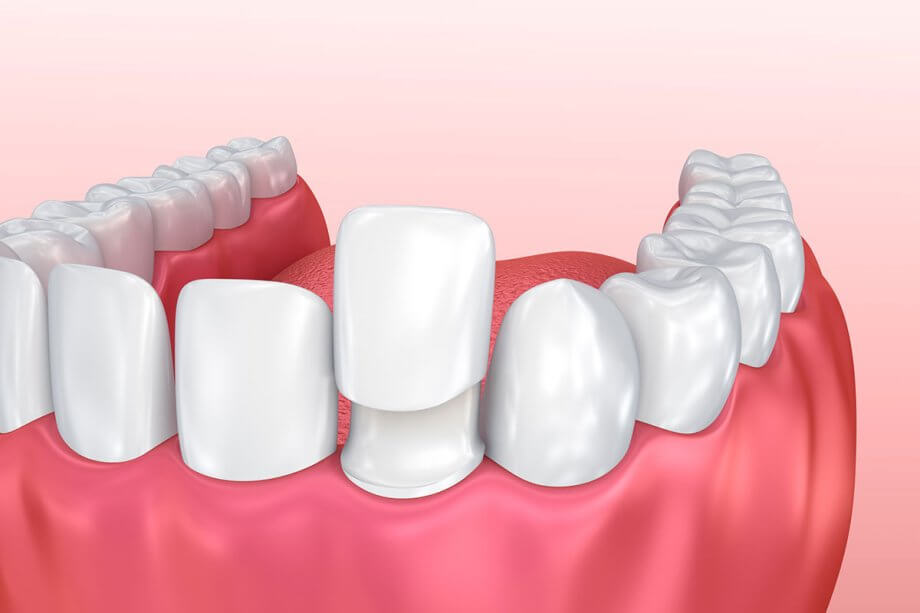Dental veneers can enhance your smile by concealing a wide variety of imperfections. They are one of the most common cosmetic dental procedures because they provide a quick transformation.
If you’re considering dental veneers, you may be wondering how they work. Here’s what you need to know in order to fully understand dental veneers and decide if this may be the right treatment option for you.
What Are Dental Veneers?
Dental veneers look like natural teeth, except they are mostly flat and much thinner. They may be made of porcelain or composite material that is customized to match your existing teeth. Veneers only attach to the front row of teeth, anywhere from 6 to 8 of the teeth that are most visible when you smile.
What Cosmetic Issues Can Veneers Correct?
Veneers are capable of correcting the following cosmetic imperfections in teeth:
- Gaps
- Slightly crooked teeth
- Chips
- Uneven size or length
- Stains or discoloration
Dental veneers can change the appearance of your teeth in a variety of ways without extensive dental work.
How Dental Veneers Fit
Veneers attach to the front side of each tooth and wrap slightly around the sides. This allows them to fully conceal any cosmetic imperfections in your most visible teeth.
The Process of Getting Veneers
- Consultation and Evaluation. The first step is a consultation to learn about veneers. If you decide that you are interested in this option, an evaluation will be performed to determine if you are an ideal candidate.
- Preparing the teeth. If you are eligible for veneers, your teeth will need to be prepared. A thin layer of enamel is removed to make room for the veneers and to create an ideal surface for attachment.
- Taking impressions. After the teeth are prepared, digital images will be made of the teeth to create custom veneers that will fit accurately.
- Creating your veneers. Your veneers will be made in a lab and shipped back to your dentist’s office. In the meantime you will wear temporary veneers.
- Placing your veneers. Once your permanent veneers arrive, they will be attached to your teeth. Veneers remain fixed to your teeth unless you have them removed by your dentist.
Benefits of Dental Veneers
Veneers offer numerous benefits for patients looking to improve their smile:
- Fast. Dental veneers can correct a variety of cosmetic issues in a short period of time. You can have a new smile in a matter of weeks, whereas other treatments can take weeks, months, or even years.
- Effective. Veneers can conceal imperfections that other cosmetic treatments may not be able to. For example, veneers can conceal severe stains that don’t respond to teeth whitening treatments.
- Natural appearance. Veneers, especially those made of porcelain, provide a highly natural looking smile.
- Strong and durable. Veneers are designed to be strong enough for biting and chewing as you would with your natural teeth.
Frequently Asked Questions About Veneers
Are veneers permanent?
Veneers are bonded to your teeth and only removable by your dentist. Once your teeth are fitted with veneers, they can not go back to their natural uncovered state.
Dental veneers can enhance your smile by concealing a wide variety of imperfections. They are one of the most common cosmetic dental procedures because they provide a quick transformation.
If you’re considering dental veneers, you may be wondering how they work. Here’s what you need to know in order to fully understand dental veneers and decide if this may be the right treatment option for you.
What Are Dental Veneers?
Dental veneers look like natural teeth, except they are mostly flat and much thinner. They may be made of porcelain or composite material that is customized to match your existing teeth. Veneers only attach to the front row of teeth, anywhere from 6 to 8 of the teeth that are most visible when you smile.
What Cosmetic Issues Can Veneers Correct?
Veneers are capable of correcting the following cosmetic imperfections in teeth:
- Gaps
- Slightly crooked teeth
- Chips
- Uneven size or length
- Stains or discoloration
Dental veneers can change the appearance of your teeth in a variety of ways without extensive dental work.
How Dental Veneers Fit
Veneers attach to the front side of each tooth and wrap slightly around the sides. This allows them to fully conceal any cosmetic imperfections in your most visible teeth.
The Process of Getting Veneers
- Consultation and Evaluation. The first step is a consultation to learn about veneers. If you decide that you are interested in this option, an evaluation will be performed to determine if you are an ideal candidate.
- Preparing the teeth. If you are eligible for veneers, your teeth will need to be prepared. A thin layer of enamel is removed to make room for the veneers and to create an ideal surface for attachment.
- Taking impressions. After the teeth are prepared, digital images will be made of the teeth to create custom veneers that will fit accurately.
- Creating your veneers. Your veneers will be made in a lab and shipped back to your dentist’s office. In the meantime you will wear temporary veneers.
- Placing your veneers. Once your permanent veneers arrive, they will be attached to your teeth. Veneers remain fixed to your teeth unless you have them removed by your dentist.
Benefits of Dental Veneers
Veneers offer numerous benefits for patients looking to improve their smile:
- Fast. Dental veneers can correct a variety of cosmetic issues in a short period of time. You can have a new smile in a matter of weeks, whereas other treatments can take weeks, months, or even years.
- Effective. Veneers can conceal imperfections that other cosmetic treatments may not be able to. For example, veneers can conceal severe stains that don’t respond to teeth whitening treatments.
- Natural appearance. Veneers, especially those made of porcelain, provide a highly natural looking smile.
- Strong and durable. Veneers are designed to be strong enough for biting and chewing as you would with your natural teeth.
Frequently Asked Questions About Veneers
Are veneers permanent?
Veneers are bonded to your teeth and only removable by your dentist. Once your teeth are fitted with veneers, they can not go back to their natural uncovered state.
Am I a good candidate for veneers?
To be a good candidate for veneers, your teeth must be healthy and only have cosmetic imperfections. If you have teeth that are stained, chipped, misaligned, or misshapen, veneers may be right for you.
Learn More From Emerson Dental
If you’re interested in veneers, Emerson Dental would be happy to discuss cosmetic dentistry options with you. Contact us today to learn more and schedule an appointment.
To be a good candidate for veneers, your teeth must be healthy and only have cosmetic imperfections. If you have teeth that are stained, chipped, misaligned, or misshapen, veneers may be right for you.
Learn More From Emerson Dental
If you’re interested in veneers, Emerson Dental would be happy to discuss cosmetic dentistry options with you. Contact us today to learn more and schedule an appointment.

